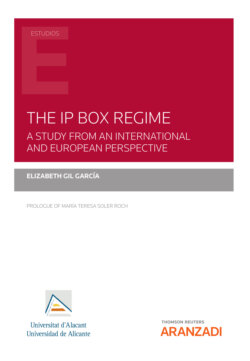Читать книгу The IP Box Regime. A Study from an International and European Perspective - Elizabeth Gil García - Страница 20
На сайте Литреса книга снята с продажи.
3.2.2. Technology-based companies
ОглавлениеTechnology-based companies normally refer to new forms of companies based on scientific and technical knowledge. This is indeed a channel for the knowledge transfer. Several definitions may be found for technology-based companies depending on the environment in which the company is set-up. On the one hand, university spin-off companies, which can be defined as newly established firms that exploit the goods and services based on the knowledge generated from the research activities performed by universities and research centres. Thus, researchers may put into business practice their ideas, i.e. from the idea to the entrepreneurship.82 Spin-off companies may generally take the form of a corporate entity, being possible the distribution of dividends. The participation of the university in the spin-off company’s capital may imply certain benefits, such as to be an alternative way of funding because of the distribution of dividends or even if the company is sold. Moreover, this could serve as a good indicator of the scientific policy of universities as spin-off companies are a channel for the knowledge transfer. Therefore, it is not only a way to transfer knowledge from PROs to the business enterprise sector but also a way that researchers work by marketing their ideas.
On the other hand, start-up companies are normally regarded as newly-created businesses based on innovation. In this regard, it is commonly held that SMEs and start-ups have normally more difficulties in performing R&D&I projects. The Oslo Manual notes that while large companies will have a broad portfolio of innovation projects at different stages of maturity; start-ups could devote all of their resources to a single innovation without viewing it as a project.83 Thus, SMEs and start-ups may find more obstacles to be innovative firms. In the European Union, SMEs have an important role in the economic activity of Member States, and the majority of EU companies have taken the form of SMEs. In a global context with continuous changes, the SME structure favours the employment growth and the regional development and, at the same time, it is a good option to face such changes due to their flexibility to get used to market conditions.84 In 13 OECD countries, a more favourable tax treatment is granted for SMEs and young firms in the form of special rates or a refund provision.85 For instance, France grants a special regime for young innovative enterprises or start-ups (e.g., jeune entreprise innovante or jeune entreprise universitaire), which is considered as a good practice by some studies.86 Therefore, if tax incentives granted to SMEs are more effective, it would be recommendable that tax measures take into consideration the particularities of this type of entities.
Finally, a reference to business R&D&I units can be made, which can be defined as entities with their own legal personality, with private nature and with non-profit purposes. The purpose is the performance of R&D&I for the main company. That is, the corporate R&D&I department. However, such department can be separated from the company due to the relevant dimension or because of the R&D&I strategy. In these cases, a spin-out arises. In other words, a spin-out arises when a department becomes independent from the parent company with the purpose to reach different goals such as the streamline processes or the outsourcing of activities. The spin-out may take any legal form (cooperative society, foundation, non-profit association, among others). Nevertheless, a high number of public aids are targeted to non-profit spin-out, so this may influence their legal form.
In the view of the present author, the corporate R&D&I department or the spin-out will not be classified as a technology-based company. Therefore, only university spin-off companies and innovative start-ups will be regarded as technology-based companies because scientific and technical knowledge is the basis for their creation.
